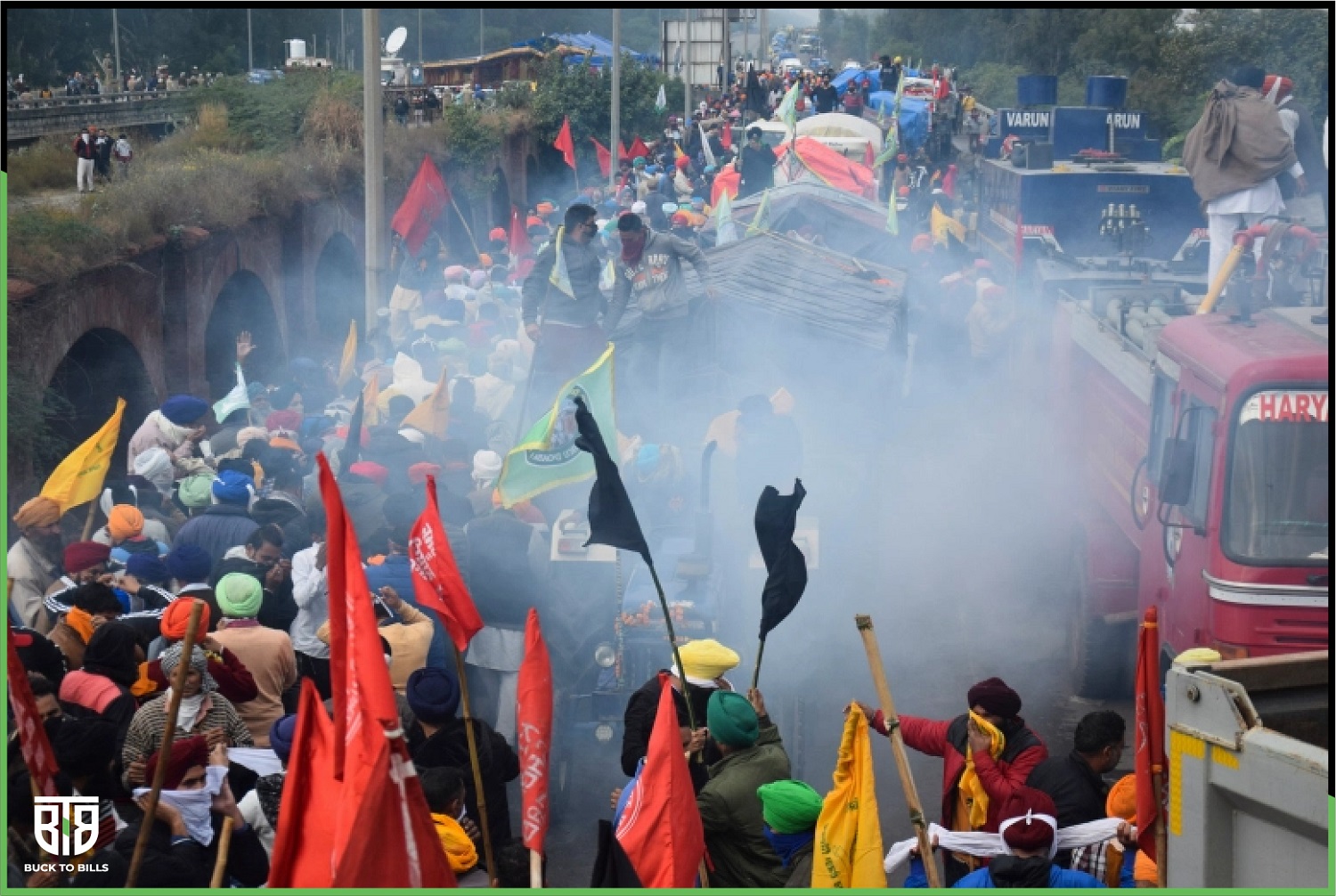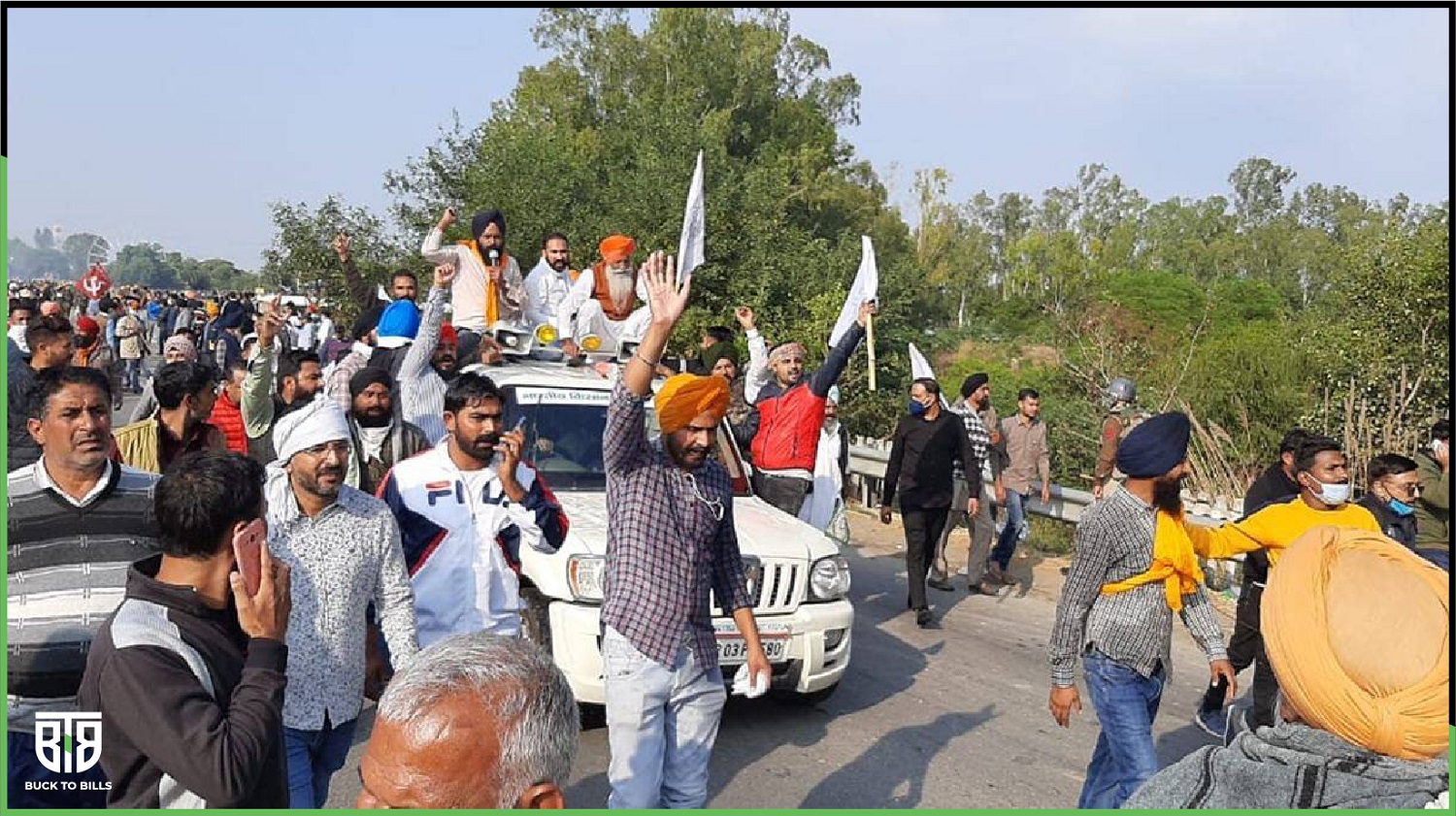Hundreds of thousands of farmers from Punjab and surrounding regions blocked the main arteries of the capital city of Delhi for two weeks now. The farmer protest has drawn attention worldwide.
Here is the primer on why and for what the farmers are protesting
Farmers are protesting against the series of new farm legislation that is perceived to be anti-farmer. Few of the provisions which antagonized the farmers are making space for private players in the marketplace that has long been dominated by the government subsidies, deregulating the sale of crops and misconception that the minimum support price would be discontinued.
What do critics say?
Farmers argue that the new set of reforms is pro-corporate and anti-farmer. It also attempts to destabilize the place of small landholders in the market place. The farmers also argue that the new set of reforms is not the ones that they have long been asking for and expecting. They allege that in the name of farmer empowerment, the government is opening its door to big corporates which may compound the already existing vulnerabilities of the farmers.
Before passing the bills, the main stakeholders, who are the farmers, were not consulted by the government say the critics.
What do the farmers want?
Farmers argue that 80% of them don’t receive the existing minimum support price on time, and they want the issue to be resolved as soon as possible. They also want the government to guarantee the minimum prices for their farm produce.
The intensity of protests:
- The protests have begun as early back in August and have been continuing with the same and increasing intensity since then. The farmers from the states of Punjab and Haryana have marched to Delhi in November. And they were abused by police physically. Tear gas and water cannon were used on the protestors despite the farmers adopting peaceful means for protesting.

- Recently, the farmers have received solidarity from the world-wide communities including support from the K and Canada.
What are the controversial laws?
- Since its most successful Green Revolution, the Indian Government has extended its helping hand to the farmers with its guaranteed price scheme for certain crops. The subsidies coupled with the advance in technology have helped Indian agriculture transform from widespread hunger to the surplus production stage. Officials have recognized that during lockdown Indian food surplus of 100 million tonnes will be able to supply the food grains to the below poverty line beneficiaries for over 18 months.
- Despite its surplus, the officials advocate that the country lacks in crop diversity and impacted the environment adversely. The new laws don’t have any provision to remove the minimum support price to farmers. The new reform tries to remove the roadblocks in the way of entry of big corporate houses to enter the agro-markets. The law has also liberalized the hoarding limits of some of the commodities. The new reforms also provide for the purchase of products outside of traditional agro-markets.
- These provisions are misconceived by the farmers as pro-corporate rather they are an attempt in a way to liberalize and to provide the farmer with a diverse range of choices to protect them from the exploitation of middlemen, the government argues.
- The government has already held three inconclusive talks with the farmers. However, the farmers stand firm on their ground. Even the talks on Wednesday have failed to bring farmers to the negotiating table. The government has ensured that the agriculture markets will be continued with and the minimum support price mechanism is here to stay. But farmers are suspicious about the government’s intent.
- Although it is pretty early to conclude things, let’s hope that the government and farmer unions come to terms shortly for a better future for all.




















